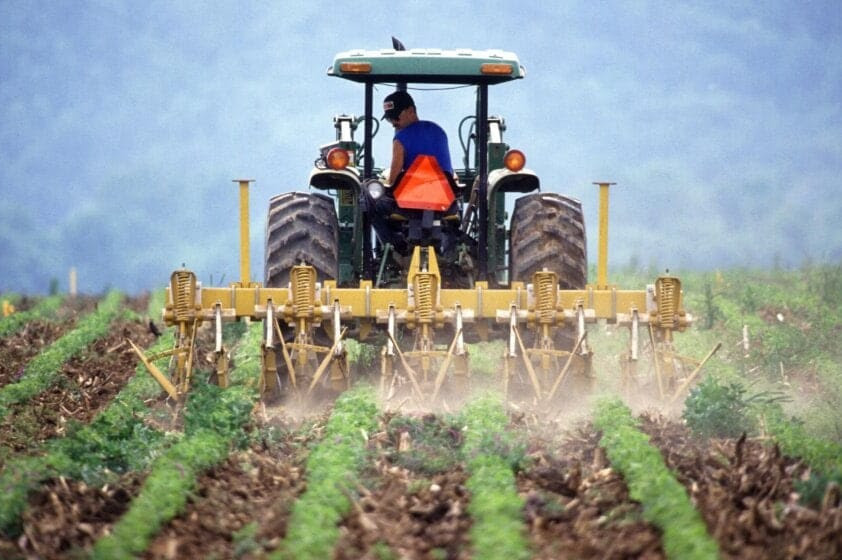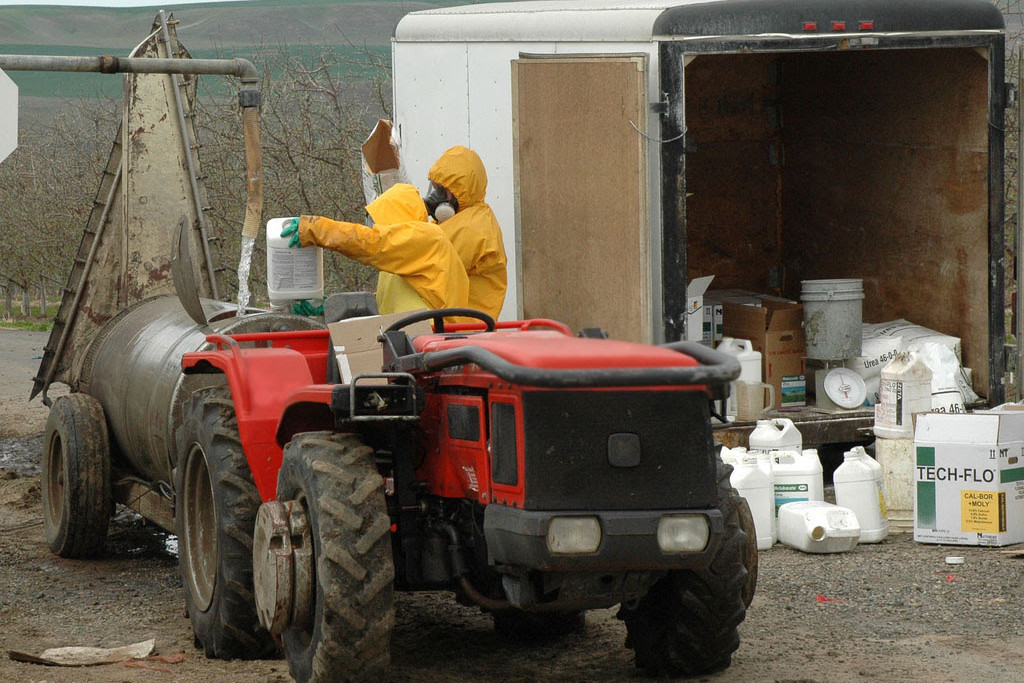Who Else Is Following Big Oil’s Playbook?
Brendan brendan@desmog.com via cmail19.com
11:53 AM (5 hours ago)
Message From the Editor
Pesticides — a broad category of chemicals that are designed to kill insects, weeds, fungi, and rodents — are among the most toxic and damaging substances on the planet.
Their harmful impacts on human and ecosystem health are generally well understood. What receives far less attention, however, is the climate impact of these agrochemicals. But a new report published this week was the result of the first in-depth scientific assessment of the connection between pesticides and climate change.
The report found a “vicious cycle” between the two: Pesticides directly contribute to the climate crisis, and also a changing climate is likely to intensify pressure from agricultural pests and decrease plant resiliency, resulting in greater pesticide usage and, therefore, further greenhouse gas emissions, according to the report.
Dana Drugmand covered the report in depth for us. One line in her article that caught my eye was this quote from one of the report’s co-authors: “Oil and gas companies and pesticide manufacturers have followed a similar playbook — strategically promoting flawed solutions to the climate crisis, like carbon capture and storage and new digital agriculture tools, which in reality offer minimal climate benefits.”
This is one reason why in 2023 we’ll be digging even deeper into agriculture as a climate story, looking not only at its emissions and impacts but also its ties to the fossil fuel industry. In the meantime, check out Dana's latest reporting and our Agribusiness Database.
Have a story tip or feedback? Get in touch: editor@desmog.com. Want to know what our UK team is up to? Sign up for our UK newsletter.
Thanks,
Brendan DeMelle
Executive Director
P.S. Our powerful public interest journalism is made possible by our generous donors. Can you donate $10 or $20 right now to support our team?
Image credit: Pixnio
farmworkers load agrochemicals into a sprayer to be applied to crops
New Report Highlights Pesticides’ Overlooked Climate Connection
— By Dana Drugmand (5 min. read) —
As chemicals designed to kill insects and weeds, fungi and rodents, pesticides are among the most toxic and damaging substances on the planet. Their harmful impacts on human and ecosystem health are generally well understood. What receives far less attention, however, is the climate impact of these agrochemicals. Not only do pesticides directly contribute to the climate crisis, but a changing climate is likely to intensify pressure from agricultural pests and decrease plant resiliency, resulting in greater pesticide usage and therefore further greenhouse gas emissions, according to a new report.
READ MORE
a side by side photo of a blonde woman in a suit, and the Shell logo
Shell Canada’s Latest President Spent Years on Board of Climate Denier Group
— By Geoff Dembicki (3 min. read) —
Shell Canada is going out of its way to assure the public that it cares deeply about fixing the climate emergency.
The oil and gas major paid late last year for an advertising feature in the Globe & Mail touting its commitment to a “net-zero” economy where humankind is no longer releasing atmosphere-warming emissions. “We’re recognizing we have to be a force for good for the community,” Susannah Pierce, who became the president of Shell Canada in 2021, says in the feature.
But Pierce’s apparent dedication to climate action is raising eyebrows among disinformation experts, because she was recently on the board of directors of the Fraser Institute, which is one of the most prominent climate crisis denial think tanks in Canada.
READ MORE
a group of British politicians sit around a table
Tory-Linked Think Tank Appoints ‘Brazen’ Climate Denier as Director
— By Christopher Deane and Adam Barnett (3 min. read) —
A think tank with ties to senior Conservative politicians has appointed a businessman who claims environmentalism is part of a “totalitarian” plan to control the public, and says there is “no causal link” between human-made carbon emissions and global warming.
Michael John Cole, chairman of a Newcastle-based health foods distributor, joined the Global Warming Policy Foundation’s (GWPF) board of trustees on December 30, according to Companies House documents filed last week.
READ MORE
Oil pumps in California
Fossil Fuel Groups ‘Spent Millions’ on Social Media Ads Spreading Climate Disinformation During COP27
— By Phoebe Cooke (4 min. read) —
Fossil fuel-linked groups spent around $4 million on Facebook and Instagram ads that spread false climate claims over the COP27 summit, a new report says.
The physical presence of more than 600 fossil fuel lobbyists overshadowed the November conference in Sharm El-Sheikh, Egypt, as world leaders, NGOs and activists gathered in a bid to accelerate global efforts to confront the climate crisis.
READ MORE
Three men stand shoulder to shoulder during an award ceremony
UAE Selects Fossil Fuel Exec to Lead COP28
— By Dana Drugmand (3 min. read) —
Climate campaigners reacted with outrage on Thursday to the announcement that the United Arab Emirates’s president has appointed the leader of the country’s national oil company to preside over the 2023 United Nations climate talks, which the UAE will host later this year.
Sultan Ahmed Al Jaber was named as president-designate of this year’s UN climate summit, COP28, scheduled to take place November 30 – December 12 in Dubai.
READ MORE
From the Climate Disinformation Database: The Fraser Institute
The words 'climate denier spotlight' in wide appear against a transitional gray background with three smokestacks and two intersecting yellow spotlights highlight a bag of gold.
The Fraser Institute is a libertarian think tank based in Vancouver, British Columbia. They describe themselves as a “independent Canadian public policy research and educational organization with active research ties with similar independent organizations in more than 80 countries around the world.” The institute’s mandate is to measure and study “the impact of markets and government interventions on the welfare of individuals.” A Fraser Institute paper authored by climate change skeptic Ross McKitrick suggests that “there has been no statistically significant temperature change for the past 15 to 20 years.”
Read the full profile and browse other individuals and organizations in our Climate Disinformation Database and Koch Network Database.
DeSmog
1455 NW Leary Way, Suite 400
Seattle, Washington, 98107
Unsubscribe
| The text being discussed is available at
and
| |


